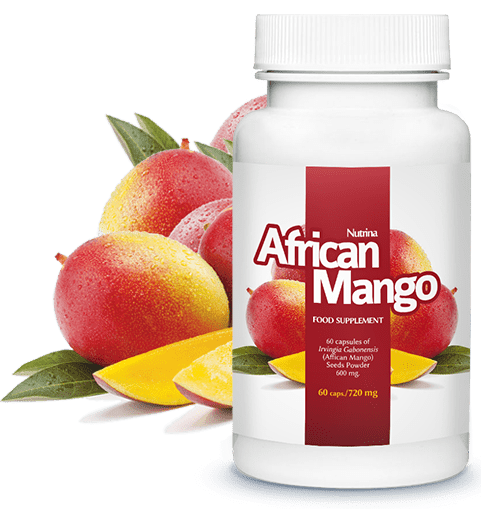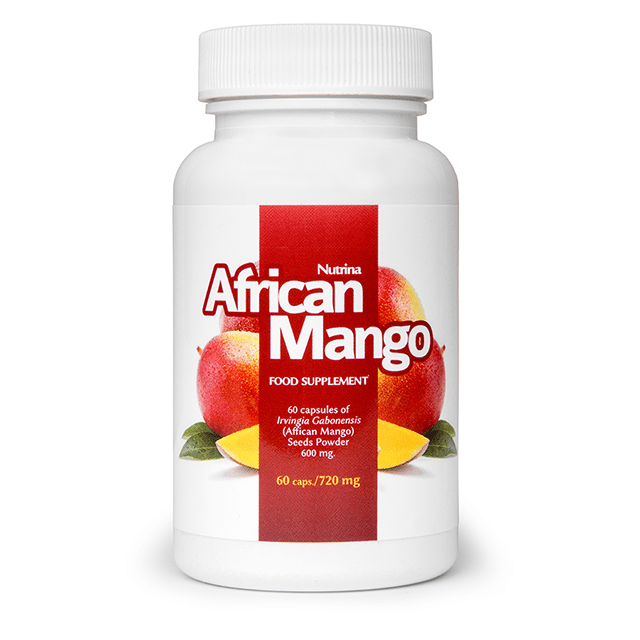
African mango (Irvingia gabonensis) is a natural fruit that African tribes have long used in traditional medicine. Usually, all parts of the plant are used - leaves, root, bark and fruit. In the regions where the African mango grows (mostly in Central and West Africa), its pulp is consumed as widely as any other fruit.
African mango seeds also contain a number of nutrients, including hearty fiber, healthy fatty acids, and essential minerals. In recent years, the seeds have been made into an extract and marketed as a dietary and weight loss supplement. You may also see African mangoes marketed under other names: deca nut, bush mango, and wild mango. Here's what you need to know about African mango supplements.
Health benefits
Few studies are available on the health benefits of African mango, and most of them are sponsored by dietary supplement manufacturers. However, research published in peer-reviewed journals - although limited - shows the plausibility of African mango as a dietary supplement.
However, it is important to note that studies conducted on the fruit itself do not necessarily mean that the same results will be achieved by taking the supplement. Here are some potential health benefits.
May help with weight management
A comprehensive meta-analysis on Irvingia gabonensis found that this fruit can aid in weight loss. Here are two examples discussed by researchers.
In a randomized, double-blind, placebo-controlled trial, participants received 350 milligrams of the seed extract or a placebo for 4 weeks. The results showed that the Irvingia gabonensis group reduced body weight at a greater rate than the placebo group
In another double-blind, placebo-controlled trial, 102 participants were given 150 milligrams of Irvingia gabonensis or a placebo. After 10 weeks, the treatment group achieved greater loss of body weight, waist circumference, and percentage of body fat than the placebo group.
Meanwhile, in a systematic review on the effectiveness of African mango supplementation, researchers found statistically significant changes in achieving smaller waist circumferences compared to placebo in 208 participants.
May improve cholesterol and triglyceride levels
In a systematic review of randomized controlled trials of African mango, researchers found that Irvingia gabonensis supplementation had positive effects on the participants' blood lipid profiles.
In another analysis of African mango, it is possible that the high content of soluble fiber in the fruit reduces plasma cholesterol and triglycerides.
May aid in digestion
Irvingia japonensis extract is rich in fiber, which can help your digestive system function properly and keep you feeling fuller for longer (and therefore, eating less).
Possible side effects
Taking African mango supplements can cause side effects. For example, supplementing can give you energy, making sleep more difficult. If you are using African mango, you can try to combat this by taking the pill earlier in the day.
You may also become dehydrated when eating African mango, so be sure to drink plenty of water when eating it. Likewise, keeping your mouth moist with liquid can help reduce dry mouth, which is also associated with African mango.

Pregnant and lactating women, children, anyone with immunodeficiency and those taking medications should avoid this supplement. Because the supplement industry is not properly regulated, the content on the labels of African mango products may differ from what you actually consume.
Dosage and preparation
The appropriate dosage depends on your health, age, and tolerance to the supplement. You may also want to take the supplement with food because African mango can upset the stomach. Meanwhile, taking it earlier in the day can work best for some people as the supplement is known to provide energy.
To purchase the product, you can find African mangoes available online, in natural food stores, and in traditional stores that specialize in nutritional supplements. Talk to your healthcare provider before you take this or any other supplement. They can tell you if it's right for you or how it might interact with your current medications.
What are you looking for
If you choose to consume African mango, look for supplements containing USP
(US Pharmacopoeia) Seal, wherein the quality of the product is guaranteed. The label should also not include any treatment, cure, or symptom relief for a disease. Making these types of claims is illegal according to the US Food and Drug Administration (FDA).6
Word from Verywell.

African mango is often promoted as a weight control tool. But because supplements are not regulated by the Food and Drug Administration, you should speak with your health care provider before taking them. You should also bring a record of every medication and nutritional supplement you take at the appointment to ensure that you do not have any adverse reactions or allergic reactions to African mango.
If you are interested in losing weight,
https://nplink.net/hhyb0cd2